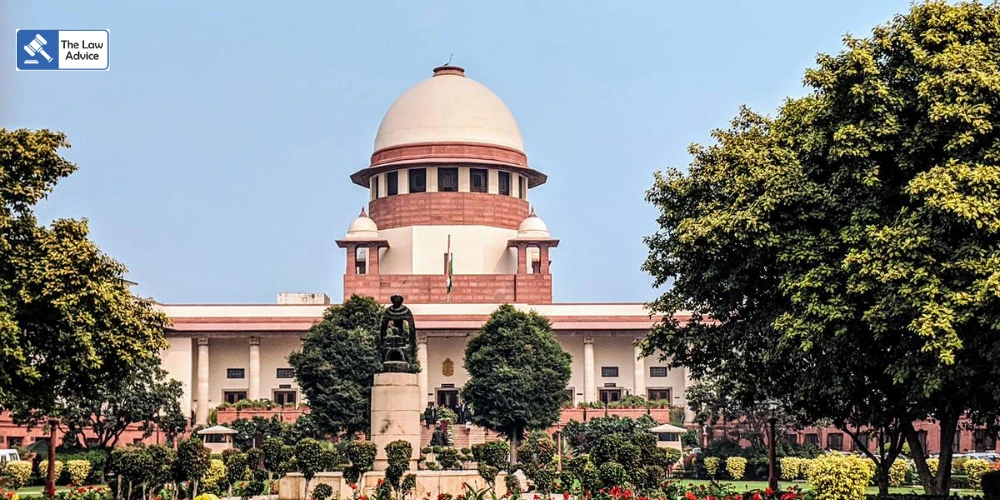The Supreme Court of India on Thursday declined to entertain a writ petition filed by journalist and YouTuber Abhisar Sharma, who sought to quash an FIR lodged against him by the Assam Police under the Bharatiya Nyaya Sanhita, 2023 (BNS) for allegedly making provocative statements against the State government.
While refusing to intervene in the FIR at this stage, a Bench comprising Justices M.M. Sundresh and N. Kotiswar Singh granted Sharma interim protection from arrest for four weeks, allowing him sufficient time to approach the Gauhati High Court for relief. At the same time, the Court issued notice on Sharma’s plea challenging the constitutional validity of Section 152 of the BNS and tagged his matter with a similar batch of cases pending before it.
The FIR, registered on a complaint filed by Alok Baruah, invokes Sections 152 (endangering sovereignty of India), 196 (promoting enmity between groups), and 197 (imputations prejudicial to national integration and security) of the BNS.
The case arises out of a video uploaded by Sharma on his YouTube channel, in which he:
• Referred to ongoing litigation before the Gauhati High Court, where the State government was questioned about allotting 3,000 bighas of land to a private company, Mahabal Cements, in the Dima Hasao region.
• Alleged that the Assam government had further allotted 9,000 bighas of land to the Adani Group, accusing Chief Minister Himanta Biswa Sarma of indulging in “communal politics” and prioritising corporate interests over public welfare.
According to the complainant, Sharma’s remarks were calculated to provoke communal sentiments, create distrust against the government, and undermine national integrity.
During the hearing, Senior Advocate Kapil Sibal, appearing for Sharma, argued that Section 152 BNS was being “indiscriminately invoked” to muzzle dissent and journalism critical of the government. He submitted that the provision had become an “omnibus” tool for criminalising free speech, and urged the Court to extend protection as it had done in the cases of Siddharth Varadarajan and Karan Thapar (both Editors of The Wire), who are facing similar FIRs in Assam.
Sibal pressed that it would be unfair to relegate Sharma to the High Court when the Supreme Court was already seized of a challenge to Section 152 BNS. He implored the bench:
“This is not fair… What has the journalist done? This Court is dealing with the matter… some uniformity must be there. They will lodge another FIR, then what will I do? Don’t do this. Society looks up to this Court.”
The bench, however, remained unconvinced. Observing that there was no impediment in approaching the Gauhati High Court, it refused to interfere with the FIR at this stage.
Nonetheless, acknowledging the concerns about repeated criminal process against journalists, the Court safeguarded Sharma by directing that no coercive action be taken against him for four weeks, during which he may seek appropriate relief from the High Court.
The order comes in the backdrop of ongoing proceedings in which the Supreme Court is examining the constitutionality of Section 152 of the BNS. The provision criminalises acts seen as endangering the sovereignty, unity, or integrity of India, but critics argue that its vague and wide phrasing mirrors the misuse of the erstwhile sedition law (Section 124A IPC).
Recently, the top court had extended interim protection to The Wire’s Founding Editor Siddharth Varadarajan and Consulting Editor Karan Thapar, who are facing FIRs in Assam for alleged violations of Section 152 BNS in relation to their journalistic work. Sharma’s petition, now tagged with those cases, will also be decided when the Court takes up the constitutional challenge.
Case Details
• Case Title: Abhisar Sharma v. Union of India & Ors.
• Case No.: W.P.(Crl.) No. 338/2025
• Counsel for Petitioner: Senior Advocate Kapil Sibal; AoR Sumeer Sodhi
• Bench: Justices M.M. Sundresh and N. Kotiswar Singh
